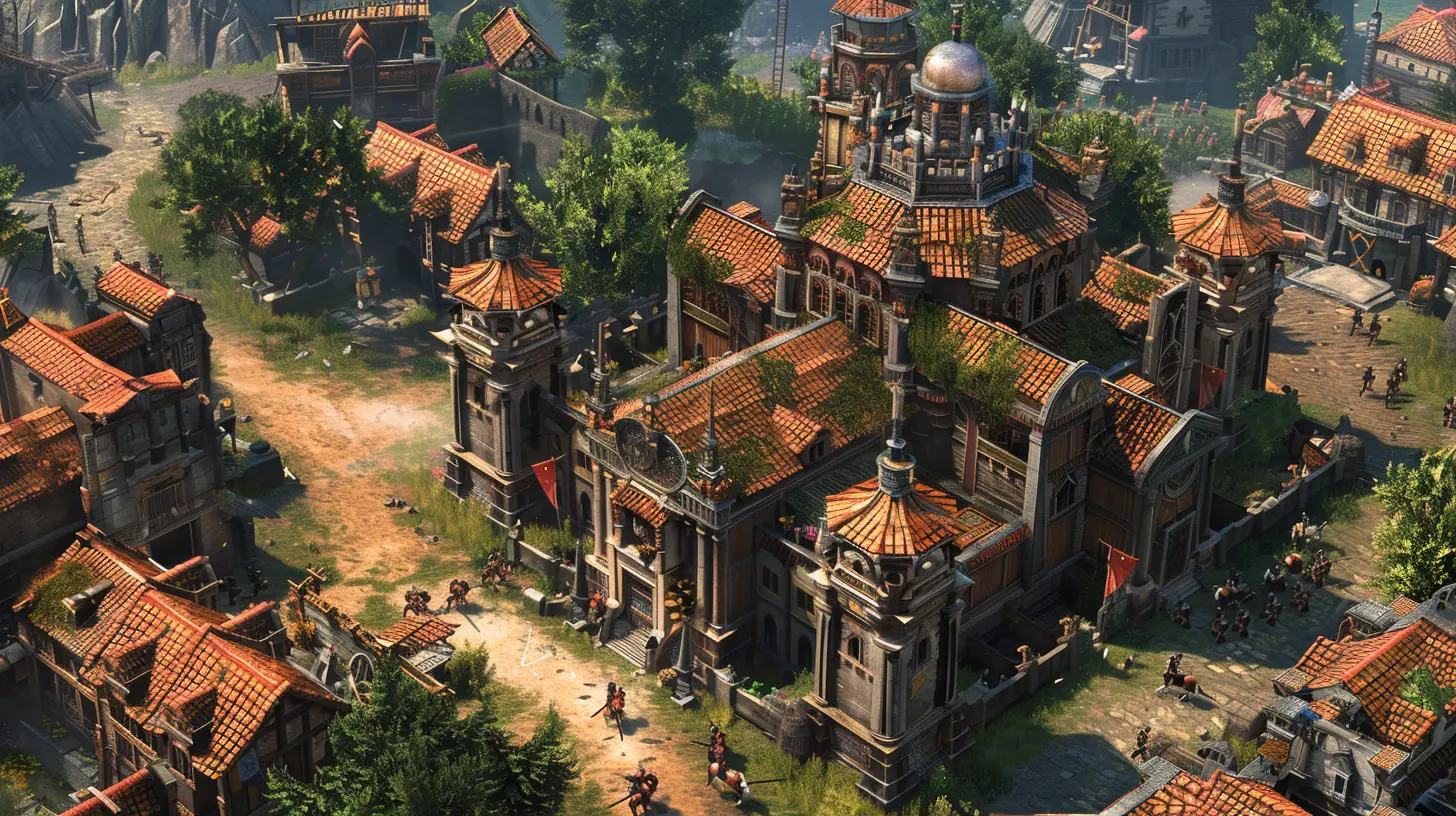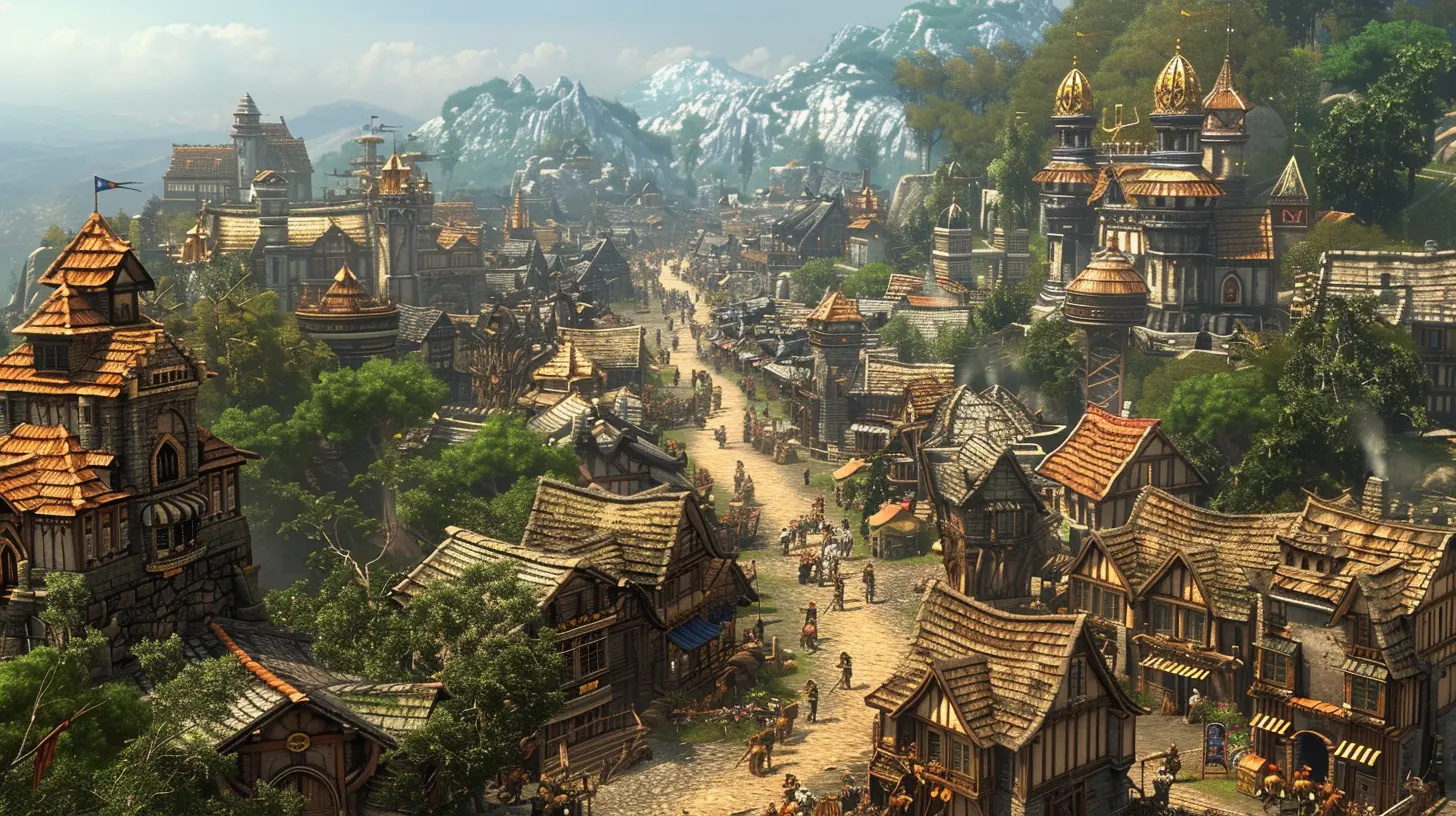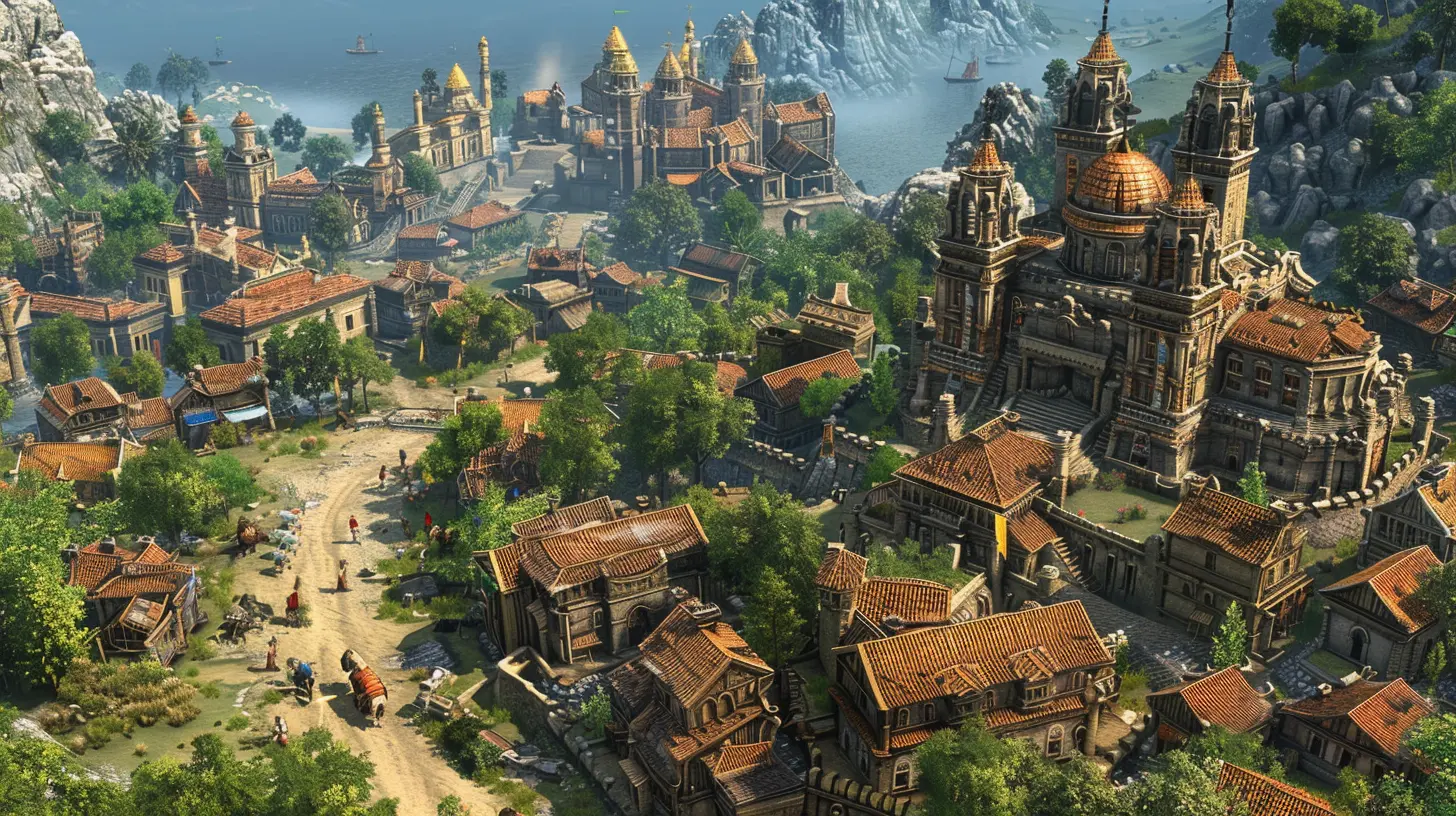How to Build Strong Alliances in MMO Strategy Games
4 July 2025
MMO (Massively Multiplayer Online) strategy games take the idea of virtual warfare and crank it up to eleven. These games aren't just about collecting resources and leveling up your base — they're about building empires, crushing enemies, and, most importantly, forming powerful alliances. If you're flying solo in an MMO strategy game, chances are you're not going to last very long. Alliances are more than optional — they're essential.
In this guide, we’ll dive deep (but keep it fun) into how to build strong alliances in MMO strategy games. Whether you’re a seasoned general or a fresh-faced newcomer, there’s something here for you. So, grab your digital sword (or spaceship or tank, depending on your game of choice), and let’s talk strategy.
Why Alliances Are the Backbone of MMO Strategy Games
Let’s start with the basics — why should you even care about alliances?Think of MMO strategy games like a giant game of Risk, but with thousands of players, limited resources, and a 24/7 world that doesn’t stop when you log off. You need eyes, ears, and swords watching your back. That’s where alliances come in.
Alliances offer:
- Strength in numbers: Even a mid-tier player can become a powerhouse with trusted allies.
- Shared resources and protection: Allies can rally to defend your base when you’re offline.
- Social fun: Let’s be real — strategizing and conquering is more fun with friends.
Sound good? Let’s break down how to build an alliance that doesn’t just exist, but thrives.
Step 1: Know Your Game — And Its Politics
Every MMO strategy game has its own “meta” — that’s gamer-speak for the strategies, politics, and power structures that dominate at any given time. Before you reach for the “Create Alliance” button, spend some time lurking and observing.Ask yourself:
- Are there dominant alliances ruling the map?
- What alliances are up-and-coming?
- Are there rivalries or conflicts you can leverage?
Just like in real-world politics, alliances must be strategic. Don’t blindly join the first group that invites you. A strong alliance is built on purpose, not desperation.
Step 2: Focus on Communication First, Power Second
You might have the biggest base and the most powerful army, but if you can’t communicate, your alliance will fall apart faster than a Jenga tower in an earthquake.Look for (or build) alliances that prioritize these:
- Active leadership: A strong alliance needs someone — or a few someones — who keep things organized.
- Clear communication platforms: Whether it's Discord, in-game chat, or another app, quick and reliable chat is key.
- Open dialogue: Everyone should have a voice, not just the top-tier players.
Pro tip: If your alliance can’t strategize in real-time during major battles or events, you’re at a serious disadvantage.
Step 3: Find the Right Players (Not Just the Strongest)
Here’s a hard truth: raw power doesn’t always equal loyalty or value.When forming or growing an alliance, prioritize players who:
- Are active and log in regularly
- Engage in alliance chat and events
- Have a team-first attitude
- Are willing to teach or learn
It’s better to have 20 reliable players than 100 silent, solo-focused warlords who only show up when it benefits them. Think quality over quantity.
Step 4: Set Clear Rules and Shared Goals
Ever been in a guild or alliance where no one knows what’s going on? Yeah, that’s not where legends are made.Strong alliances set expectations and goals. This could include:
- Minimum activity levels
- Contribution to alliance wars or events
- Defense responsibilities if someone is attacked
- Resource sharing etiquette
It's like running a mini company or club. If nobody knows the rules, things get chaotic fast. Keep things clear, fair, and consistent.
Step 5: Support Your Allies — Always
You’ve probably heard the phrase “a chain is only as strong as its weakest link.” In MMO strategy games, your alliance is only as strong as your most neglected teammate.That means:
- Responding to calls for help
- Sending reinforcements when needed
- Sharing resources to rebuild someone who's been attacked
- Jumping into battles — even if it's risky
This creates loyalty. And in MMO strategy games, loyalty is worth more than gold. The players who feel supported won’t think twice about going to war for you later.
Step 6: Be Strategic About Diplomacy
Your alliance doesn't exist in a bubble. There are other groups out there — some friendly, some not-so-much. A good alliance leader knows how to play politics just as well as they play the battlefield.Here’s how to use diplomacy to your advantage:
- Forge non-aggression pacts (NAPs) with nearby alliances
- Coordinate with other alliances to take down bigger threats
- Negotiate over resources or territory instead of fighting for them
- Keep communication polite even with enemies — scorched-earth trash talk rarely ends well
Building relationships outside your own circle can open the door to mergers, joint wars, and resource swaps that can tip the scales in your favor.
Step 7: Stay Active and Evolve
An alliance that rests eventually gets crushed. Just like in real life, if you’re not growing, you’re slowly dying. Here’s how to keep your alliance at the top:- Recruit regularly to replace inactive players
- Train new members or assign mentors
- Adapt strategies based on new updates or game balance changes
- Celebrate victories and milestones with members to boost morale
Gamers are more loyal when they feel like they’re part of something that matters. Keep things fresh and exciting, and they'll stick with you.
Step 8: Handle Conflict Like a Pro
Even in the tightest alliances, drama will eventually rear its ugly head. Someone gets too bossy. Another player doesn’t pull their weight. Two members argue over a raid gone wrong.So, how do you deal?
- Address issues early before they blow up
- Use logs and screenshots to resolve disputes (facts > opinions)
- Stay neutral as a leader or bring in a neutral officer to mediate
- Make tough calls when necessary — sometimes kicking a bad apple saves the group
The best alliances aren’t perfect — they’re just really good at bouncing back from mess-ups.
Step 9: Use Events as a Loyalty Machine
Events are adrenaline-packed opportunities to bond with your alliance. Whether it’s fighting off NPC invasions or clashing in PvP tournaments, these are prime times to build trust and camaraderie.During events:
- Set a game plan and assign roles
- Celebrate your alliance’s progress in real-time
- Offer small rewards or recognition for outstanding contributions
- Debrief afterward — what worked, what didn’t, and what’s next
You'll notice people get more invested in the alliance when they feel involved and recognized.
Step 10: Think Long-Term — Legacy Over Ego
It’s easy to get caught up in immediate power or personal glory. But strong alliances think long-term. Would you rather be remembered as a lone wolf who burned out early or as the mastermind behind a legendary alliance that shaped the server?Encourage a culture of mentorship. Focus on team goals over individual rankings. And always think a few steps ahead. Big moves now should set the stage for even bigger battles later.
Bonus Tips from Veteran Players
Here’s some wisdom gathered from MMO strategy veterans — take notes, these tips are gold:- Don’t ignore time zones: It's hard to coordinate if half your members are asleep during war.
- Spies are real: Be careful about who you promote to key roles.
- Use spreadsheets: For keeping track of members, wars, resources — yes, it makes a difference.
- Host alliance events outside the game: Trivia nights, meme contests — it builds community.
- Have a backup plan: If leadership disappears, who steps up?
Final Thoughts
Building a strong alliance in MMO strategy games isn’t just about stacking power — it’s about crafting a close-knit, hard-hitting, always-ready team that can take on anything the game (or rival players) throws at them.You don’t need to be a dictator or a genius tactician — just someone who values communication, supports others, and is in it for the long haul. The rest? It falls into place.
So start scouting those potential allies, get on that voice chat, and start strategizing. Because in the world of MMO strategy games, the battlefield may be digital, but the friendships and rivalries? Oh, they’re very, very real.
Game on.
all images in this post were generated using AI tools
Category:
Massively Multiplayer OnlineAuthor:

Tina Fisher
Discussion
rate this article
2 comments
Phoebe McNeely
In realms where valor meets the night, Alliances bloom, hearts igniting bright. Craft your bonds with trust and grace, Together, thrive in this vast space. Through whispers shared and battles fought, Strengthened souls, in unity sought. In strategy's dance, let friendships soar, For together, we conquer, forevermore.
October 26, 2025 at 4:51 AM

Tina Fisher
Thank you for your poetic take on building alliances! Indeed, trust and collaboration are essential for thriving in the world of MMO strategy games.
Cassandra McPhail
Fostering communication and mutual goals is key to forming strong alliances in MMO strategy games.
July 16, 2025 at 3:47 AM

Tina Fisher
Absolutely! Effective communication and shared objectives are essential for building trust and collaboration within alliances.


